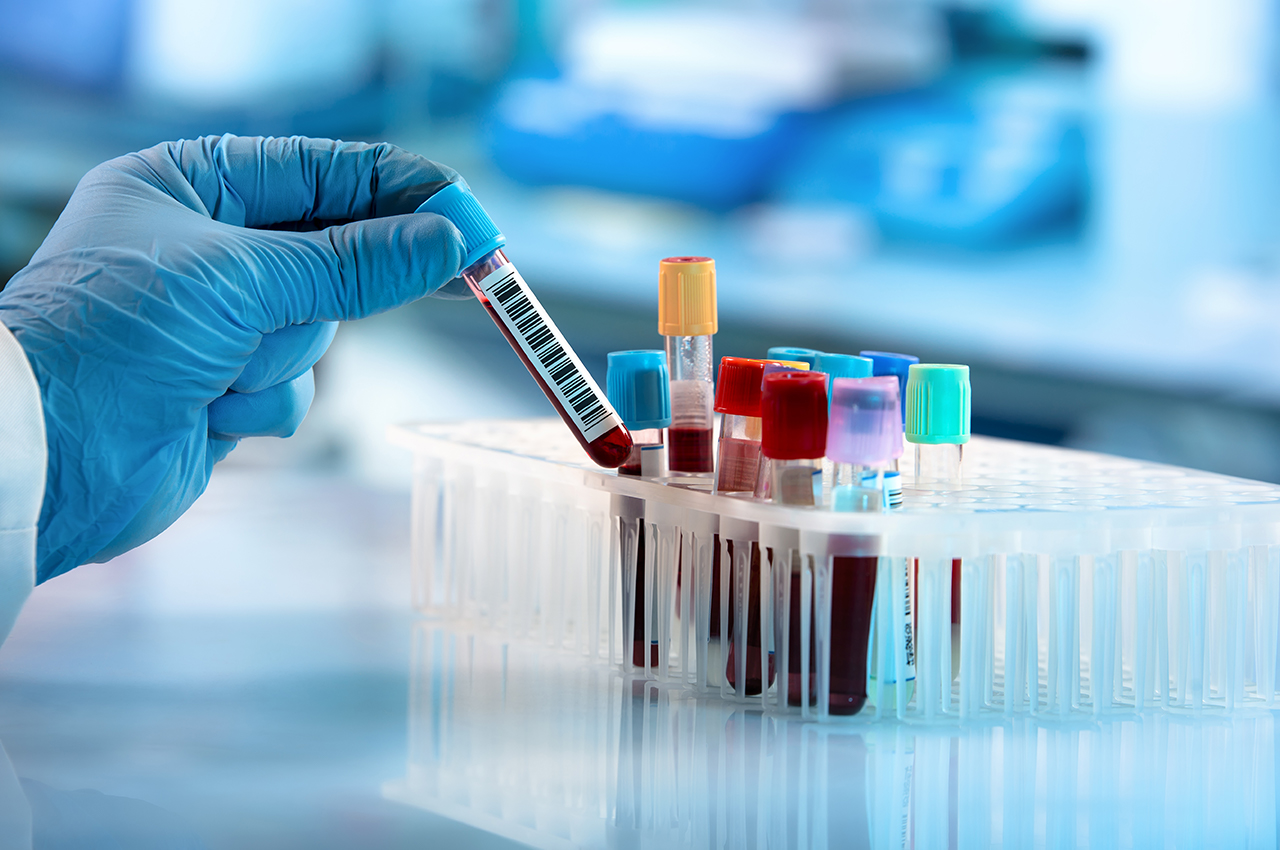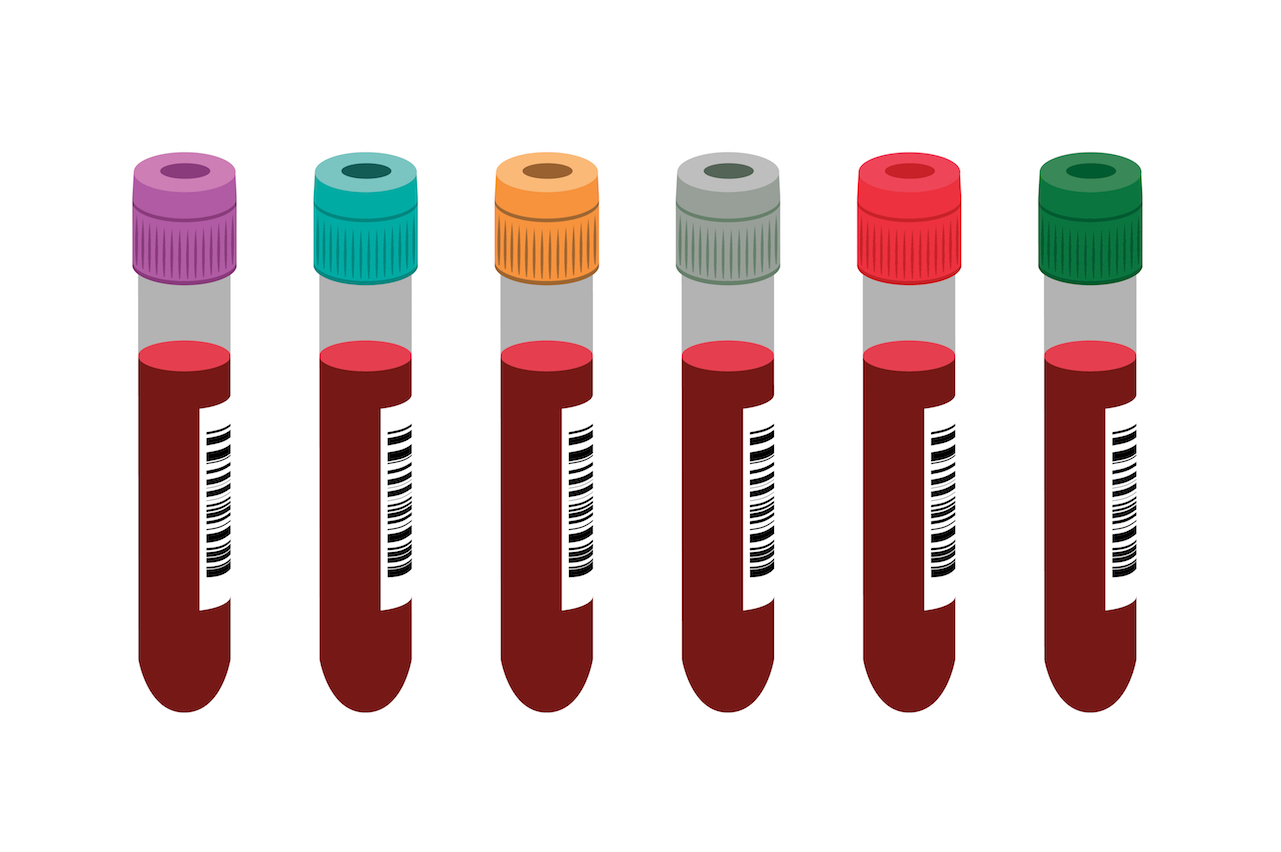Blood testing can help catch potential health risks early, before they progress to serious health problems. Blood tests are recommended on an annual basis for people over the age of 40.
Keep an eye on your overall health with these tests.
Thyroid function
Your thyroid regulates how your body uses energy. It influences the way your respiratory, circulatory and nervous systems function. It also influences brain function, cholesterol levels, menstruation, body temperature, muscle tone and strength, and skin conditions. When your thyroid function is too high or too low, you could have serious health complications.
Tests for…
A thyroid-stimulating hormone (TSH) test checks if your thyroid gland is working efficiently. It can tell you if it’s overactive (hyperthyroidism) or underactive (hypothyroidism). A blood sample is taken from a vein in the arm and sent off to a lab for analysis. Together with your test results and any symptoms you may have been experiencing, your doctor will determine whether you have a thyroid disorder, how severe it may be, and how to treat it.
Complete blood count
A complete blood count (CBC) test measures all the cells that make up your blood. These include your red blood cells, white blood cells, and platelets (tiny pieces of blood cells).
Tests for…
The test tracks blood disorders, like anaemia, leukaemia and blood clotting disorders. This is used to diagnose autoimmune disorders and infections, while also being able to show whether any dangerous nutritional deficiencies are present.
Sex hormones
A hormone imbalance is often linked to health conditions that include obesity, hypothyroidism, hyperthyroidism, and hypertension. It can impact sexual health and performance, cholesterol and Type 2 diabetes.
Tests for…
This test measures the level of sex hormone binding globulin (SHBG) in your blood. SHBG is a protein made by your liver. It binds tightly to three sex hormones found in both men and women. These hormones are oestrogen, dihydrotestosterone (DHT), and testosterone. SHBG carries these three hormones throughout your blood Although SHBG binds to three hormones, the hormone that’s critical in this test is testosterone. The level of SHBG in your blood changes due to factors like sex and age but can also change because of obesity, liver disease, and hyperthyroidism. Your doctor may mention this test if he suspects that you have abnormal testosterone levels.
Haemoglobin A1C
This test measures the number of red blood cells with glucose-coated haemoglobin. Uncontrolled high blood sugar can lead to diabetes. In people already diagnosed with diabetes, consistently high blood sugar increases the risk of damage to your liver and kidneys, heart disease, stroke, and eye disease.
Tests for…
The haemoglobin A1C test is an important blood test to diagnose diabetes or find ways to control diabetes. It gives an average blood glucose measurement over the past three months.
Vitamin profile
Vitamins are an essential part of a healthy and functioning system which includes your organs and cells. They impact physical, cognitive and emotional health.
Tests for…
A vitamin profile blood test is done to pinpoint and resolve any suspected deficiencies.
Magnesium
Magnesium plays a vital role in several chemical reactions in the body. It works with cell communication, providing energy for cells, and in the structure of chromosomes, cell membranes and bones.
Tests for…
A magnesium deficiency is related to diseases like diabetes, cardiovascular disease and osteoporosis. It can also impact calcium and Vitamin D absorption and their levels in your body.
Comprehensive metabolic panel
A comprehensive metabolic panel is a group of blood tests. They provide an overall big picture view of your body’s chemical balance and metabolism.
Tests for…
A CMP test measures liver and kidney function, as well as levels of protein, calcium, blood sugar, and electrolytes. This provides a look into the chemical balance of your body and your overall metabolism.
C-reactive protein (CRP)
This is a test for inflammation in the body. Chronic inflammation is usually linked with diseases like rheumatoid arthritis, certain cancers, periodontitis (inflammation of the gums), hay fever and atherosclerosis (a disease where plaque builds up inside your arteries).
Tests for…
CRP is produced by the liver. Its level rises when there’s inflammation in the body. Levels are measured by testing the blood.
Lipid panel cholesterol test / lipid profile test
This blood test checks triglycerides and cholesterol levels, which include both high-density lipoprotein (HDL) and low-density lipoprotein (LDL) levels. Too much cholesterol can threaten your health. This also increases the risks of stroke and cardiovascular disease.
Tests for…
Testing can catch cholesterol problems early, and lifestyle changes can reduce your risk.
Urine test
A urinalysis can help detect diabetes, urinary tract infections and kidney problems. This test is often included in a regular doctor’s appointment.
References:





